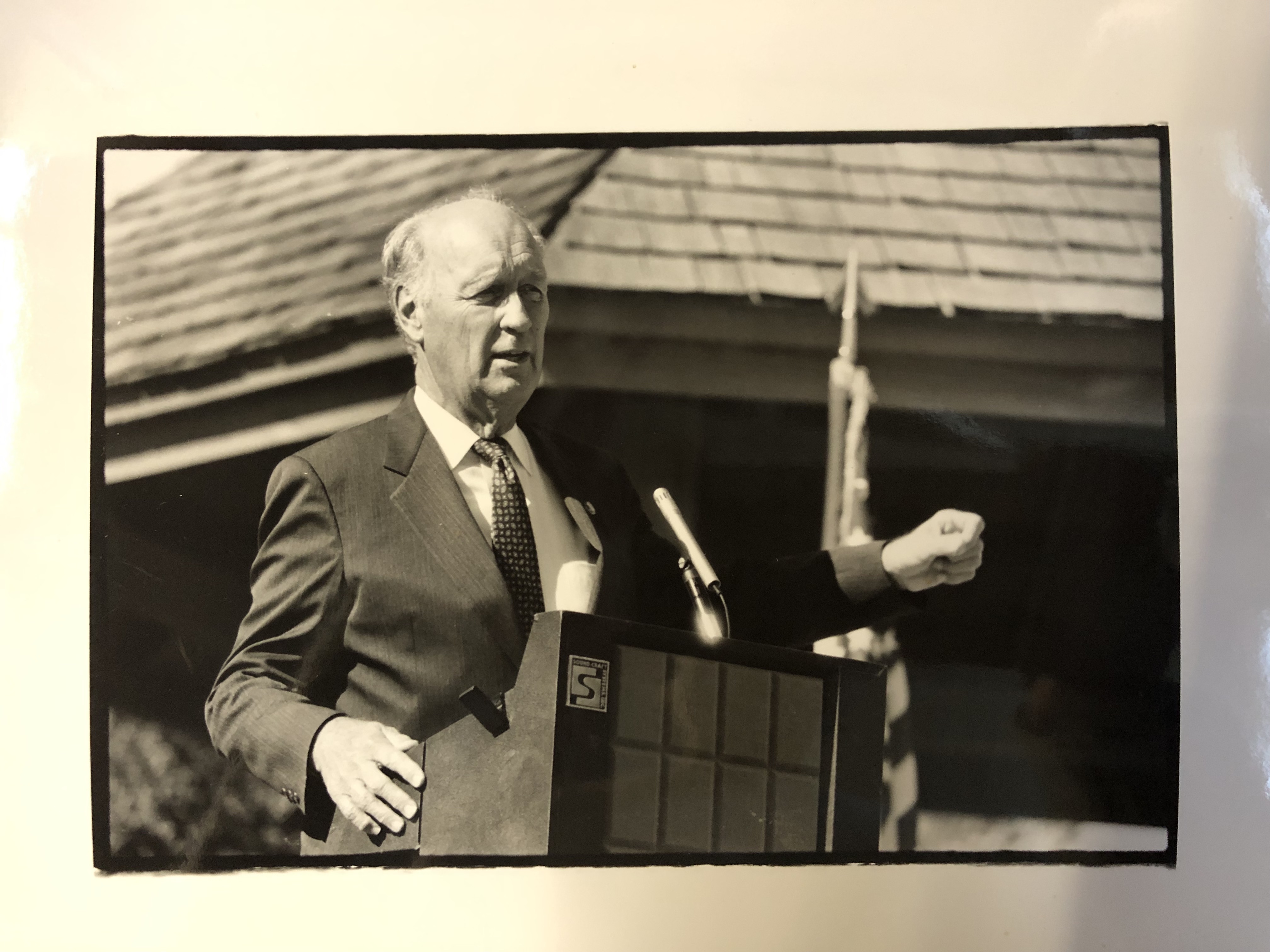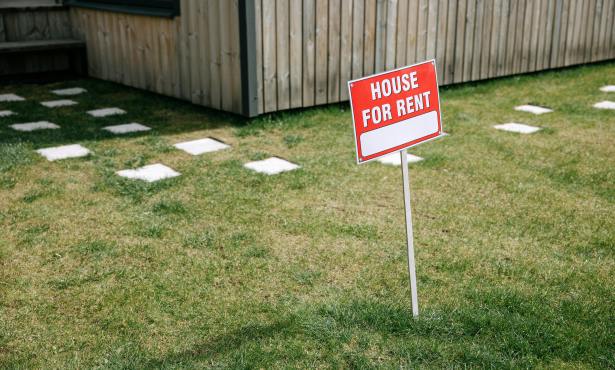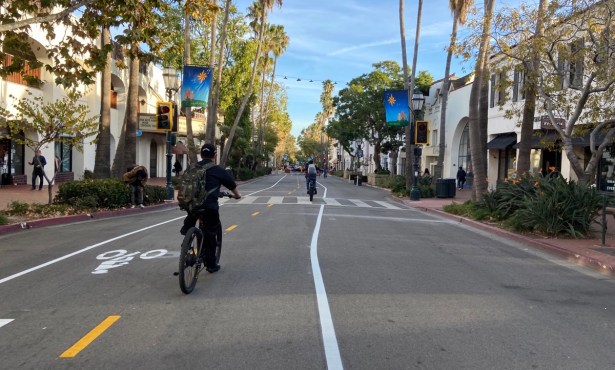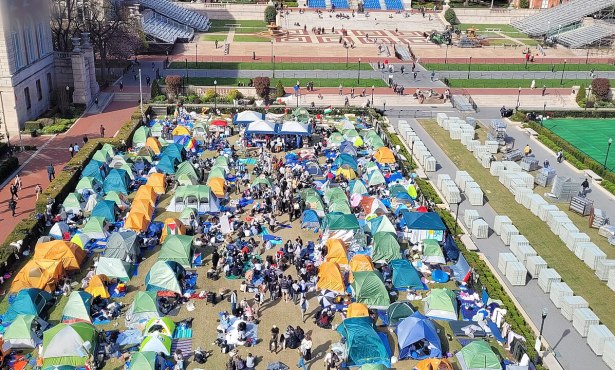A Sad End to a Good Day
Protest Shuts Down a Salute to Walter Capps, a Man Who Worked Toward Civil Discourse

It was a small, short-lived event — no violence, no obscene chants, nothing like what we’ve seen on campuses and in city streets for the last month. But it was a dispiriting reminder of the climate we are in now.
Last weekend on the UC Santa Barbara campus, a series of events took place to celebrate the life and work of Walter Capps, a legendary professor of religious studies. For years, the unprepossessing Capps had become a towering figure not just at UCSB, but across the country. His course on the Vietnam War, fusing academic inquiry with the powerful recollections of veterans and protesters alike, had been nationally recognized — in large part because of Capps’s magnanimity, his insistence that “democracy starts with conversations,” his determination to bridge intense disagreements. In 1996, he was elected to Congress; eight months later, he was dead of a heart attack at 63.
The weekend was an effort to highlight how Capps’s efforts were being carried on, on campuses and in communities, by those who had been touched by his example. The conference closed with a panel featuring his daughter Laura — a county supervisor — his widow; Lois, who served nine terms in Congress; his son, Todd, who now heads the Capps Foundation; and former U.S. Senator Bob Kerrey, who’d won the Medal of Honor for his valor in Vietnam.
About a half hour into the presentation, the panel was interrupted by loud shouts. A small cluster of protesters stood on either of the hall, bearing signs calling for a ceasefire and condemning genocide. After a few moments, Bob Kerrey said to them: “You have the power to shut us down, but we cannot continue this discussion if you keep shouting.” Pleas from the moderator to wait until the panel’s end for a conversation were unavailing; the shouting continued, and the panelists gave up and left the stage.
This was a classic case of “the heckler’s veto,” objecting to a speaker by simply refusing to let the speaker speak. Rather than an exercise of “free speech,” it’s the exact opposite. (It’s a tactic that spans the ideological spectrum. A couple of weeks ago, when a reporter asked the new Speaker of the House why he’d refused to recognize Joe Biden’s election, his fellow GOP House members simply shouted the question down.)
What made this event so dispiriting was that there was nothing about the panel that made it a target for protest. Yes, Laura Capps had voted with the rest of the Santa Barbara County Board of Supervisors for a resolution supporting Israel; a protest at her office would have made perfect sense. But shouting down a conversation about the life and work of a teacher who devoted himself to reconciliation and commonality?
This small band could have stood silently, letting the conversation go on while continuing their protest. They could have protested outside the hall or convened a gathering on campus to argue their case.
Instead, they apparently acted out of the conviction that there is no place, no venue, that should be free of disruption. It leaves open a key question: Is there a point beyond which such disruption is unwarranted? We’ve seen the consequence of this kind of zealotry among those driven by the false belief that Donald Trump really “won” the last election. Across the country, people’s lives and safety have been threatened by these true believers. We’ve also seen Jewish businesses, cemeteries, schools, and community centers vandalized by those who believe this is an effective way of protesting the actions — or even the existence — of Israel.
What happened at UCSB did not come close to reaching the level of such behavior. It was, rather, a case of passionate advocates concluding that the rightness of their cause justified shutting down an effort to honor the life and work of an inspiring, compassionate voice.



